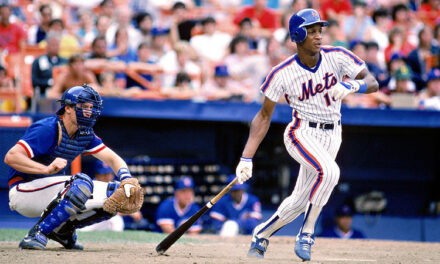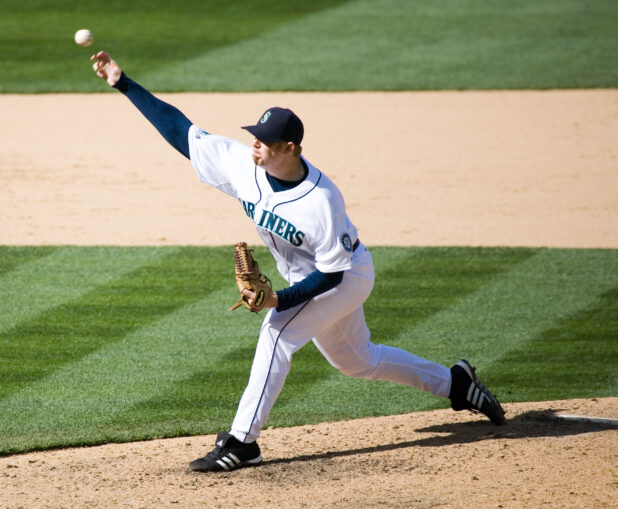
From 2006 through the 2013 season, right-handed reliever J.J. Putz was one of the more dominant back-end relievers in baseball.
Among qualified relievers during that stretch, Putz was sixth in fWAR (10.5), 14th in FIP (2.74), tied for 13th in K-BB% (21.1) and recorded the 8th-most saves (179).
His best season came in 2007 with the Seattle Mariners, where he appeared in 68 games posting the lowest ERA among qualified relievers (1.38), WHIP (0.70) and best Win Probability Added (5.82). The ’07 season was Putz’s first and only trip to the All-Star Game, and he also took home the A.L. Rolaids Relief Man of the Year Award.
After spending his first six big league seasons with the Mariners and being with the organization since the club drafted him in the sixth round of the 1999 MLB Draft, Putz was part of a three-team, 12-player trade that sent him, Sean Green and Jeremy Reed to the New York Mets in December 2008.
The Mets added Putz less than 48 hours after signing free-agent closer Francisco Rodriguez to a three-year, $37 million deal to strengthen their bullpen heading into their inaugural season at Citi Field.
Unfortunately for Putz, the ’09 season was filled with disappointment and frustration as the righty dealt with a bone spur in his elbow – which had been discovered the previous year by the Mariners – leading to surgery in June. Hoping to come back and be a factor in the second half of the season, Putz’s rehab hit a snag after new fraying and a slightly torn ulnar collateral ligament in his right elbow was discovered.
For his Mets tenure, Putz appeared in 29 games posting a 5.22 ERA while walking as many as he struck out (19). Though the inflammation Putz was dealing with throughout the ’09 season was likely the main culprit in his diminished velocity, control problems and limiting the effectiveness and use of his signature pitch, the split-finger fastball.
Following his injury-plagued ’09 season, Putz signed a one-year deal with the Chicago White Sox, posting a bounce-back season. Putz appeared in 60 games posting a 2.83 ERA with a 1.04 WHIP. Among qualified relievers, Putz was 12th in K-BB% (22.8%) and 11th in xFIP (2.74).
Putz spent the final four seasons of his major league career with the Arizona Diamondbacks, where he appeared in 175 games and posted a 2.81 ERA. Only Brad Ziegler recorded a lower career ERA (2.57) with the Diamondbacks among pitchers who appeared in at least 150 games. In 2011, Putz recorded career highs in saves (45) and posted the second-lowest WHIP of his career (0.914), while making his first and only postseason of his career.
After twelve seasons in the majors, Putz hung up his cleats after the 2014 season. He joined Arizona’s front office as a Special Assistant to the President and CEO Derrick Hall, in which he assists Hall and other departments throughout the baseball and business side.
Overall, Putz appeared in 572 games, posting a 138 ERA+ with 189 career saves. Putz is one of 18 pitchers to record at least four seasons with 60 or more appearances and a FIP no greater than 2.70.
I had the privilege of speaking with Putz where he discussed adding the splitter to his repertoire, getting dealt to the Mets and working in the front office for the Diamondbacks.
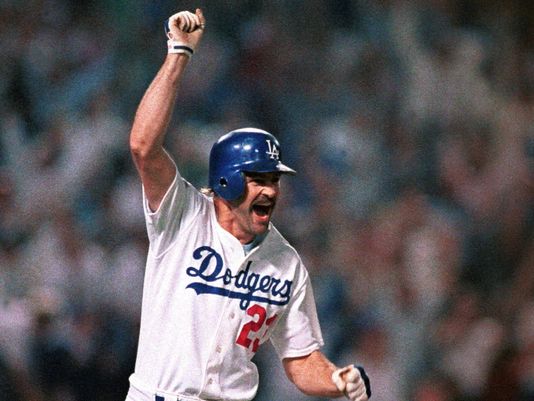
MMO: Who were some of your favorite players growing up?
Putz: I grew up in Detroit so I was a big Tigers fan. As the wonderful game of baseball would have it, my two favorite players growing up were Kirk Gibson and Alan Trammell. I was fortunate enough to have them as a manager and bench coach at the end of my career, so that was pretty cool.
MMO: At what point did you start honing in on pitching?
Putz: I started pitching pretty much from the summer of my sophomore year in high school; I was a catcher before that. We were in a tournament and I kind of just started pitching in that tournament and was throwing pretty hard and kept at it.
MMO: You were drafted by the Chicago White Sox in the third round of the 1995 Draft, then the seventeenth round by the Minnesota Twins in 1998 before being drafted in the sixth round by the Seattle Mariners in 1999. What made you forgo signing in ’95 and ’98 before signing with Seattle in ’99?
Putz: The ’95 one was kind of easy: I just didn’t think I was really ready to be kind of on my own, own. When you go to school you’re kind of on your own, but you have parental figures around especially playing a sport in college. I didn’t think I was ready to be on my own at that age.
When I got drafted by the Twins I was coming off knee surgery and I wasn’t really 100 percent, so I didn’t want to start pro ball not 100 percent. That was kind of another no-brainer just to go back and play my senior year.
MMO: You were mainly a starting pitcher in the minors. At what point did Seattle approach you about moving to the pen and what were your initial reactions to it?
Putz: It was in 2003. I had been a starter all throughout the minor leagues and that spring training they kind of mentioned wanting to put me in the bullpen. My first thought was, Man, I must suck! I just thought it you’re not a starter they must throw the guys that can’t be a starter to the bullpen.
It ended up being a great move, that season is the year the Mariners’ starters didn’t miss a start so I probably would have not gotten called up. I had some success out of the bullpen in Triple-A that year and got called up and never really looked back.
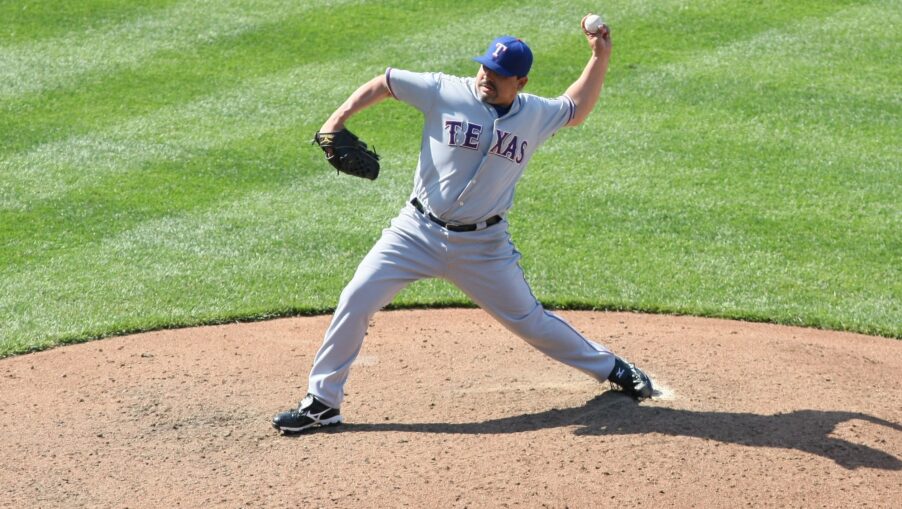
MMO: Your 2006 season seemed to be a breakout one for you. Your WHIP was under 1.000, you posted a 2.30 ERA with an 11.9 SO/9. Was there anything you changed or altered that year? Was that the year that Eddie Guardado taught you the splitter?
Putz: So the year before is when I kind of tinkered with throwing a split a little bit, nothing serious. Eddie was my throwing partner and I thought I really needed to add another pitch. I was playing around with it in the spring and he literally just turned the ball in my hand like a quarter turn with no seams. He said, “Throw this thing.”
I threw it as hard as I could and it dropped off the table and I was like, holy cow! I ended up using it in a spring training game that day and that’s when the strikeouts started to pile up really.
MMO: From 2006-07, you posted the highest fWAR (5.5), fourth-lowest ERA (1.86), third-highest K rate (33.0) and fifth-most saves (76) among relievers. How did you approach your role as a closer, and what type of mindset did you have when out there on the mound?
Putz: I was very fortunate to have guys like Eddie around, Shigetoshi Hasegawa, Jeff Nelson, Arthur Rhodes, etc. They kind of taught me the ropes in the bullpen and definitely a guy like Eddie, who had closer experience, obviously was a guy I would lean heavily on from the mental part of it.
There are definitely ups and downs throughout every season and just having a guy like that to kind of talk you through those down times was very beneficial. But my approach was just try to get ahead, throw strike one, get ahead and try to make them swing and try to hit your pitch.
MMO: Did you sense that you approached closing a game out in the ninth differently than any other inning?
Putz: You know, that’s the one question I don’t think anyone has really been able to answer: Why is the ninth inning so different? I didn’t feel like I changed my approach or anything like that. My goal coming in from the pen was to get ahead and throw strikes.
As a starter, you kind of have time to feel your way through the first couple of innings. But relieving you don’t have a couple of innings; you might have a couple of at-bats and the game could be over. It was more about really focusing on strike one and getting ahead.
MMO: What was your prep work like before appearing in a game?
Putz: My preparation really didn’t change no matter what the score was. In the fifth inning, I would start moving around and I would do my heavy ball work and stretching. That was another thing that Eddie really tried to instill into the young guys when we came up was find a routine, stick to your routine good or bad because the one thing you can always count on was your routine.
Mine was literally to start moving around, get the heavy ball going, stretch out, and then I would always play catch with the outfielder in the eighth inning to get a couple of more throws in before we may or may not have to get rocking.
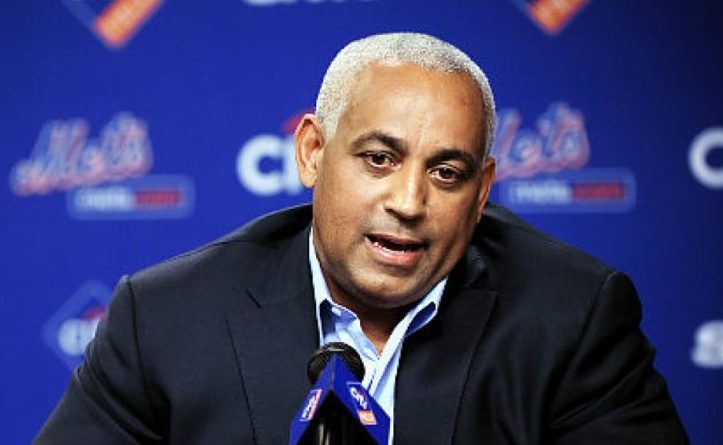
MMO: What were your initial reactions upon hearing the news that you were traded to the Mets in December 2008?
Putz: Shocked for one and sad because Seattle was the only home I knew. They were the ones who initially drafted me, that I signed with, came up with and had a ton of friends not just on the team but throughout the organization.
Once the dust settles on that you understand the business part of it. Then I was just focused on trying to get a hold of some new teammates and coaching staff and figure out my first spring training not in Arizona. I had a kid on the way so that was a little nerve-wracking but it was all good.
MMO: Did you hear any rumors that you were on the trading block?
Putz: There were definitely rumors out there, I think that was just around when the MLB Trade Rumors site was starting. You heard rumblings but I talked to the GM of the Mariners, Jack Zduriencik, at the time, and he said he didn’t have any intentions of trading me but he had to answer the phone and do his due diligence.
A deal just kind of came forward that he felt comfortable making and that was pretty much it.
MMO: Obviously the 2009 season was a disappointment, as you appeared in just 29 games before having surgery that June to remove a bone spur. I remember reading several articles from the next season where you voiced some displeasure over the way the Mets handled you. Can you talk a little about your experience in New York?
Putz: It came up sometime in May when I first started to feel my forearm and elbow things. I thought the surgery went well with Dr. Altchek; sometimes things just happen.
I was close to being back, felt tightness in my forearm and kind of got sent home and went through some rehab here at the Fischer Institute and became a free agent that offseason. I’m not sure there was anything wrong with the way I was handled, I just think it was one of those unfortunate events.
MMO: Perhaps there was some misunderstanding because I do recall a few articles after you signed with the White Sox for the 2010 season where you seemed to be upset over the situation.
Putz: I think just being hurt and not being able to come back from it and pitch again that frustration probably set in at some point. But looking back at it, it’s one of those things that happened. It was a life lesson, a career lesson. There was nothing really structurally wrong with my elbow after Dr. Altchek did the surgery.
Overall, the experience just wasn’t great there being hurt and not winning. Maybe that got taken a little out of context? But no big deal.
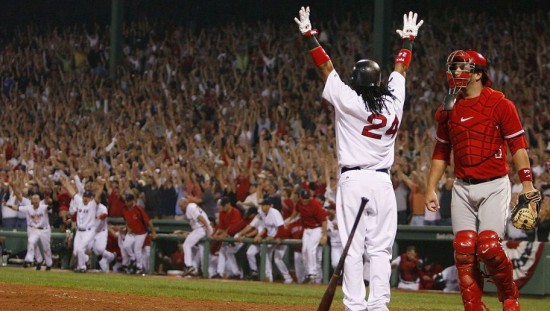
MMO: Were there one or two hitters that gave you the most trouble during your 12-year major league career? Conversely, was there someone who felt like you owned? Jason Giambi and Manny Ramirez were two players I noticed you had great career success against.
Putz: Yeah, I did have success against those two guys. I don’t know if there’s a reason why; maybe just the way your pitching style sets up with other guys. But there are definitely guys that you see waiting in the on-deck circle and you’re just thinking to yourself, I’ve got to get through this inning right now because I do not want that guy coming up. It’s not a good feeling when that happens. [Laughs.]
Orlando Cabrera was definitely one and one of the biggest ones was Gary Matthews Jr. I know this for sure: he was 8-for-13 off me, with three homers and two doubles. That’s what I would classify as ownage. Cabrera was like 7-for-14 off me.
I felt like Matthews just knew what I was throwing. I remember one at-bat and I hadn’t thrown a curveball in about two years. I was like, Screw it, I’m throwing him a first-pitch curveball. I told the catcher and he hit it out! I was like, I give up! I can’t get this guy out.
MMO: Were you someone that utilized analytics and wanted a ton of information before you pitched?
Putz: Not necessarily. The biggest thing that I wanted from the scouting reports was I wanted to know which guys would take pitches in the ninth inning and which guys were super aggressive. For me, it was all about going out and pitching to my strengths. If my strength was a fastball down and away and that’s his strength, then we’re just going to find out who’s the better man that day.
MMO: You’ve been a Special Assistant to the Diamondbacks President and CEO Derrick Hall for several years now. How did that position come about, and what are some of your responsibilities throughout the season?
Putz: That came about my first year playing with the Diamondbacks. I had some conversations with Derrick and he was like, “I’d like you to come work for me whenever you’re done playing.” That conversation continued throughout the rest of my time in Arizona as a player.
When I got released, I think it was about a week later when I finally determined I wasn’t going to try and keep playing that year. I called him and asked if he still wanted me to work for him, and he said yes. I said, ‘Alright, I’m ready to go!’ He told me we’d talk again in November, which we did and I signed on with them.
Some of my jobs are corporate outings, season ticket holder events, from time to time on the field during spring training with pitchers and catchers and community outreach. Kind of a broad web of things.
MMO: Can see yourself sticking in that role? Do you have any ambitions of getting back in the game as a coach or manager?
Putz: No, I kind of like this role. I’ve got an eleven-year-old son and I’m coaching his baseball team so that’s enough coaching for me.
MMO: When you look back on your career, what are you most proud of?
Putz: I would say I’m probably most proud of being a good teammate and a good guy in the clubhouse; a leader in the clubhouse.
MMO: Thanks for your time today, J.J., it was great speaking with you.
Putz: Thank you.
Follow J.J. Putz on Twitter, @jjputz40





